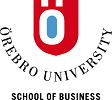No 2019:2: Trade and jobs: a description of Swedish labor market dynamics
Hildegunn Kyvik Nordås (), Magnus Lodefalk () and Aili Tang ()
Additional contact information
Hildegunn Kyvik Nordås: Örebro University School of Business, Postal: Örebro University, School of Business, SE - 701 82 ÖREBRO, Sweden
Magnus Lodefalk: Örebro University School of Business, Postal: Örebro University, School of Business, SE - 701 82 ÖREBRO, Sweden
Aili Tang: Örebro University School of Business, Postal: Örebro University, School of Business, SE - 701 82 ÖREBRO, Sweden
Abstract: We perform a granular analysis of Swedish labor market dynamics, using matched employer employee and firm level trade data for Sweden over a 15-year period. The employment share in firms that are directly exposed to international trade has decreased, due to a shift in employment towards personal and public services. Analyzing the dynamics, we find that workers in firms that change export status are slightly less likely to obtain the same wage rise as their peers. However, workers that stay in the same job in trading firms are less affected by changes in export and offshoring volumes, with the exception of high-skilled workers in manufacturing firms who face a downward pressure on wages from services offshoring, but higher wages from services exports. Finally, we find that exports and offshoring of goods and services stimulate labor demand. While exports and offshoring of services increase relative demand for skilled workers, exports and offshoring of goods stimulate relative demand for middle and low skilled workers.
Keywords: Worker flows; Job flows; Trade; Wages; Labor Demand
JEL-codes: E24; F16; F66; J63; P23
27 pages, May 21, 2019
Full text files
wp-2-2019.pdfFull text
Questions (including download problems) about the papers in this series should be directed to ()
Report other problems with accessing this service to Sune Karlsson ().
RePEc:hhs:oruesi:2019_002This page generated on 2026-01-16 04:38:50.

